Climate Change and "The Great Reset"
Is There Really A Conspiracy?
Global cooling. Global warming. Climate change. Call it whatever you like. It’s been prominent in the news for decades, and the message has been a simple one: Be afraid! But, do we need to be really?
Remember when Al Gore told us in 2006 that the polar ice caps would be completely melted by 2020? It didn’t happen. Today, more people than ever are questioning climate change. Still, the media continues to remind us that an existential threat looms. In recent years, the media warnings have been more dire.
Amazing! Climate change predictions 80 years down the road!
(Now if we could just get an accurate weather forecast…)
It’s too bad the news outlets couldn’t come up with a few dramatic images (to scare the shit out of us!). The one above looks like a scene from the 70’s horror film “Carrie”.
Tilting the picture makes it scarier, yes?
Too Hot? Too Cold?
If you look at climate predictions historically, they’ve not only been very extreme, but extremely varied. In less than thirty years, the prediction went from a coming ice age to global warming, What can I say? I’m skeptical.
Time magazine warns of “Global Cooling” in 1977. Less than 30 years later, it warns of “Global Warming”. There does seem to be some wiggle room.
CARBON EMISSIONS AS THE CAUSE
Experts assure us that carbon emissions from our use of fossil fuels are the culprit in this current climate emergency. They tell us that we must switch to “greener” energy sources, and fast! But, finding a viable replacement is a tall order. Fossil fuels provide lots of power quickly and cheaply. They are, by a huge margin, the most efficient energy source on the planet. Plus, they’re easy to store (in drums and tanks) and to transport (via tanker or pipeline). For these reasons, a full eighty percent of all the energy we use in the world today comes from fossil fuels.
Included is the energy we use to heat our homes, to travel to and from work, to produce much of our food, and to power our businesses. Given this fact, how realistic is the plan to switch off the fossil fuel spigot any time soon?
THE ‘CARBON TAX’ AS A SOLUTION
Canada’s Carbon Tax applies to fossil fuels used for essentials such as gasoline and home heating fuels. It’s hefty, and will make using fossil fuels prohibitive for a great number of Canadians. Experts, however, tell us the idea is a good one in that:
the additional cost at the pumps will nudge consumers away from fossil fuels, and;
the new tax revenues will be used to fund development of new, greener energies.
Everybody wins, right? Well, not exactly.
THE PROBLEM WITH “GREEN” ENERGY
Does green energy live up to its hype? Take electric cars, for example. One of the biggest challenges in manufacturing electric vehicles is in sourcing the materials used to make batteries. These “rare earth minerals” (including cobalt and lithium) are very difficult to extract from the earth’s crust, making them expensive to produce. A typical battery for a single electric vehicle can cost $15,000. And, like all batteries, they wear out. Typically, the battery expires long before the car itself wears out. As a result, a majority of otherwise useable electric cars wind up discarded in landfills.
Above: An electric car cemetery in France. Does this look “green” to you?
Child Labour Is Used To Extract Minerals
Since batteries wear out relatively quickly, they’ll need to be replaced fairly often. The truth is that a future with electric vehicles will require an endless supply of new batteries. Since the materials used are both difficult and expensive to acquire, manufacturers resort to any and all means to reduce costs. This typically includes the use of child labour in places like Congo and other third-world nations.
Cobalt and lithium are highly carcinogenic. Children in third-world countries are employed to extract the minerals. Can this be considered “green”?
Fossil Fuels Are Used To Process Minerals
Once extracted from the earth, the cobalt and lithium must be processed. Processing requires exorbitant amounts of energy. Fossil fuels are the only cost-effective option. Will CO2 emissions from battery production offset the benefits of going electric? It’s quite possible. (For more on that, check out this article.)
There are other, more practical, questions too:
Will There Be Enough Batteries?
Is it possible to manufacture a sufficient supply of batteries such that everyone who wants to own an electric vehicle can do so? How will that happen? Is the plan simply to “employ” more third-world children to extract minerals? And then to use fossil fuels to process these minerals? And what about the prohibitive upfront cost to purchase an electric vehicle? Is the plan to limit vehicle ownership? Will only the very rich be able to afford one?
Is It Practical To Re-Charge Car Batteries?
Consider that only eight percent of the world’s energy comes from hydro-electricity and that many large cities each have millions of cars on the road. (New York City alone, for example, has over eleven million.) Is it possible to charge this many car batteries on a regular basis? Will we need to ration electricity? Bear in mind that fully re-charging an electric car battery takes hours. Compare that to a five-minute stop for gas.
How long will you have to wait to charge your car? How many kilometers can you travel on a single charge? Will there be enough electrical power for everyone to operate a vehicle?
Can Wind and Solar Really Power Our Homes?
Remembering that eighty percent of our energy currently comes from fossil fuels, we have to ask: can we realistically rely on solar and wind to replace it? The reality is that, for practical reasons, we simply cannot. Why?
A key issue is that wind and solar technologies are weather dependent; they generate power intermittently, depending on whether or not the sun is shining or the wind is blowing. Hence, batteries will be needed to store the energy for use later on. How many batteries would it take to heat one home in winter? (Answer: Too many!)
There are other issues, too. For example, solar panels tend to lose efficiency quickly, meaning their ability to convert solar energy into electricity fades. These panels are full of toxic materials. And because they’re expensive to recycle, they typically wind up in landfills after just a few years of usage. Wind-powered turbines present similar problems.
Both solar panels and wind turbines are fraught with landfill issues. The U.S. alone will have 720,000 tons of turbine blades to dispose of over the next 20 years.
The blades used in turbines are huge (sometimes as long as a football field). They’re super-strong, built to withstand hurricanes, and cannot easily be crushed or recycled. At the end of their lifespan, they are usually buried, where they sit indefinitely. Furthermore, wind turbines when operating cause harm to nearby plants and animals due to the electromagnetic frequencies produced.
These are real issues for anyone seriously concerned about the environment. And given that these new technologies provide only a small fraction of the energy we need, something doesn’t quite add up about the “green” agenda.
But, wait! There’s more.
FOOD: THE LATEST CLIMATE THREAT?
Beyond the supposed threat from fossil fuels used in our cars and homes, there’s apparently a new climate challenge: food farming. Government’s response is simple: cut back on food production! You hear very little about it in your nightly news casts. But make no mistake about it, there’s an all-out attack on food production all around the globe. And it’s no longer just about cow farts.
Remember when cow farts were the threat? I guess people didn’t buy it. Now we’re given new reasons to limit food farming.
In Canada, the assault on food production is two-fold:
First, there’s the impact of the Carbon Tax on farming operations. This tax hits food production especially hard because farmers use fossil fuels extensively. For example, spraying crops, heating livestock facilities, and drying grain all require the use of fossil fuels; the increased costs of the tax can be significant, adding $50,000 to $100,000 yearly. For many operations, this can mean the difference between continuing to operate or shutting down.
Second, and with an even greater impact, is a proposed ban on the use of nitrogen fertilizers. Nitrogen has been used for years, as it greatly enhances crop yields; without it, many farms would simply not be viable. The Trudeau government asserts that, like fossil fuels, the nitrogen used in farming is a major contributor to climate change. Government’s response has been to severely restrict its use.
What kind of government would jeopardize its nation’s food supply?
If not working to serve its electorate, then who does it serve?
In reality, some farming operations have already been forced to shut down. And many more are at risk. While food prices (and even food availability) are already a problem, things are on track to get far worse. But, not just in Canada.
Food Production: A Global Attack
All across Europe, farming operations are experiencing the same kind of coordinated assault. In the Netherlands, farmers have fought back as more than 3,000 farming operations are forcibly being shut down.
Farmers across the Netherlands blocked highways and even used manure sprayers to attack government buildings in protest to imposed limits on nitrogen fertilizers. How did the Dutch government respond? With tanks.
And, in Sri Lanka, angry mobs stormed government buildings and even the private residences of both the President and Prime Minister. The protest had an impact, as both officials were forced to resign. Similar uprisings are occurring in Germany, Spain, Italy, Poland and beyond.
Many thousands revolt in Sri Lanka and around the world, including in Germany, Spain, Italy, Poland and the Netherlands. Why are farmers around the world suddenly in revolt? And why so little media attention on these huge events?
More Attacks On The Food Supply
Over the last several years, a rash of strange attacks on food production facilities have been taking place throughout the United States. In some cases, businesses were so hard hit they were forced to shut down. The result has been significant increases in the price of pork, beef, chicken and eggs; in some cases, the very supply has been cut. The timing and frequency of these attacks raises questions.
Attacks on food processing facilities have been occurring with alarming frequency. Arson and even frequent accounts of planes crashing directly into food plants are becoming common. Chicken, egg, beef and pork facilities have all been affected.
WOOD STOVES: YET ANOTHER CLIMATE THREAT?
In some jurisdictions, the right to use wood (and gas) stoves is being legislated away. Such restrictions are becoming more common around the globe.
So much for living off the grid. Will heating your home with a wood stove soon constitute a “global-warming crime”? Gas ranges are also in the legislative crosshairs. Is all this about limiting our carbon emissions? Or ending self-reliance?
TOTAL RELIANCE ON ELECTRICITY?
The conversion away from oil heat, wood stoves, and gas ranges can lead to only one outcome: a complete reliance upon electrical power. This should be a concern for us all. Not only because of potential supply limitations and interruptions, but also because of what it will mean to our freedom in general.
The Smart Electrical Grid
Smart technologies in your household (such as Smart meters and Smart appliances) have become common. Moreover, they enable complete surveillance and remote control of your electrical usage. Will your measured “carbon footprint” determine how much electricity you’ll be allowed to use? If you break the climate rules (or any other rules), will your energy usage be cut back? Will it be turned off altogether?
The Canadian government (and others around the globe) now offer huge subsidies to convert to electric home heating. Does relying totally on one source for all of your energy needs concern you?
ARE ALL THESE RESTRICTIONS REALLY ABOUT THE CLIMATE?
As the media work to convince us that the planet is teetering on the edge of catastrophic climate change and that CO2 is the cause, a large and growing number of scientists (including several Nobel prize winners) disagree with that view. Such alternative viewpoints, however, are censored out of mainstream news casts.
More than 1600 scientists, including a number of Nobel prize winners, have been speaking out against climate change restrictions. Some have called the issue a complete fraud. You won’t hear about any of this in the mainstream news. (But, you can read about it here)
It’s abundantly clear that “green” technologies can’t possibly meet our energy needs; and that the push away from fossil fuels will have a detrimental impact on almost everyone on the planet. So, why not have an open debate? Why the censorship? If the future of the planet is really at stake, should we not be considering all options? Getting input from all sides? Something doesn’t seem right.
Who’s Behind The Climate Change Agenda?
As forty-two billionaires get wealthier, small businesses are collapsing in record numbers around the globe. Is the goal to eliminate the middle class? Who would benefit from that?
The World Economic Forum
A small group of billionaire industrialists collectively known as the World Economic Forum have been busy devising a plan by which the rest of us are to abide. It’s a plan they call “The Great Reset.”
The Great Reset
The stated goal of “The Great Reset” is:
“…to facilitate rebuilding from the global Covid-19 crisis in a way that prioritizes sustainable development” with an emphasis on “social, governmental and environmental issues.”
Here’s the promo video for their Great Reset:
“The Great Reset” says you’ll own nothing. (So, who will own everything?) It sounds more like a plan to render the majority of us powerless and poor.
How Could They Possibly Pull Off Such A Thing?
So, how is it that a tiny group of money mongers at the World Economic Forum gets to dictate the rights and freedoms of everybody else on the planet? Perhaps the following audio clip will offer some insight:
(Above) Listen as Klaus Schwab, head of the World Economic Forum, boasts proudly how members of his organization have infiltrated governments all around the globe in order to implement their “Great Reset”.
(Source: Karwing)
It seems odd that the billionaires infiltrating western governments own so much, yet assert that the rest of us will be happy to own nothing. What else do they think we will we be happy with, I wonder?
Consider the following:
“15-Minute Cities”
To reduce our collective “carbon footprint,” the WEF has decided it’s best that our movements be restricted. The Great Reset aims to facilitate this with what Klaus Schwab calls “15-minute cities”.
Click to hear the World Economic Forum’s description of a “15-minute city”:
Everything you need: Employment. Schools. Shopping. Recreation.
All within a 15-minute bicycle ride. No need for you to have a car!
Above: Just a tiny sampling of the many cities slotted for 15-minute re-structuring.
(Note: Is your government spending heavily to construct walking and biking trails within YOUR community? Will you be living in a “15-minute city”?)
Below: “Are we ready to give up our cars?” Keep your eyes open for more messages like this one.
More Restrictions: Legislation To Limit Access To Natural Areas
If 15-minute cities and restrictions on personal vehicle ownership don’t jar you, then check this out: provincial governments across Canada (and around the globe) have begun to pass legislation to “protect natural areas”. The plan is to make seventy-five percent of all natural areas on the planet off limits to us average folks.
Keeping us away from nature under the guise of “saving the planet” has actually been in the works for decades. To learn more, watch The Wildlands Project, a plan to keep humans away from 75% of all the world’s natural areas.
The Plan To “Build Back Better”
Despite their vast wealth, the billionaires have historically been unable to put an end to global hunger. Even today, the problem continues to get worse. But, not to worry: there’s a plan in the works.
Thanks to Covid, the billionaires have suddenly come up with a plan to solve ALL the world’s problems in one fell swoop.
The billionaires tell us that Covid has presented us with a unique opportunity to solve everything. They’ve got the perfect plan to accomplish just that (along with a cool slogan. too):
There’s a plan to “Build Back Better”. But, better for whom?
Conspiracy Theory?
Have the billionaires, and the governments they’ve infiltrated, really come up with a plan to make the world a better place? It seems odd that those plans are predicated on the rest of us being poor, hungry, cold and immobilized. That doesn’t sound better to me. It sounds more like The Great Reset.
Did Covid really teach us to build back better? Or did it simply teach us to follow rules? Unquestioningly! Else we lose our rights. Our freedoms. Our jobs. Our bodily autonomy. Will the new pandemic be Climate Change? If so, which freedoms will you be willing to give up this time around?
Is climate change the new pandemic?
Which freedoms are you willing to give up this time?
Thanks for reading Climate Change and “The Great Reset”
If you enjoyed this article, please SUBSCRIBE!
Also, please check out some of my past articles.
In future articles, I will examine some related topics related to the larger global conspiracy, including: Immigration, LGBTQ+, Central Bank Digital Currencies, the Socialist Agenda, and more.




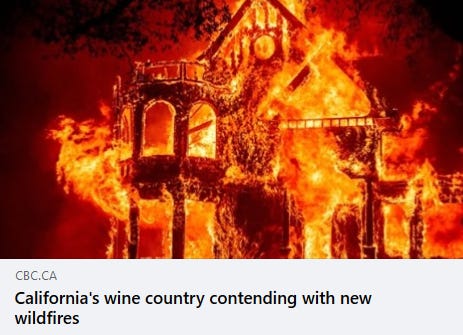
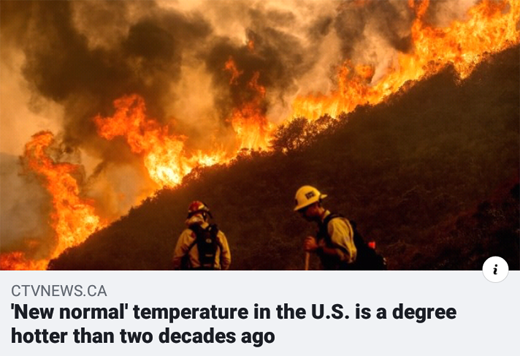
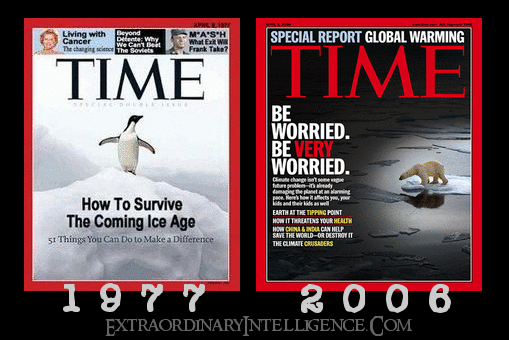







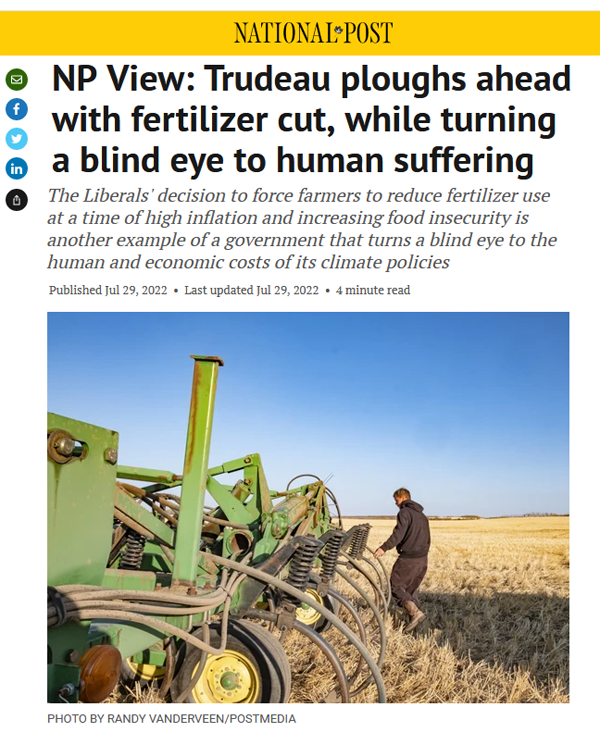











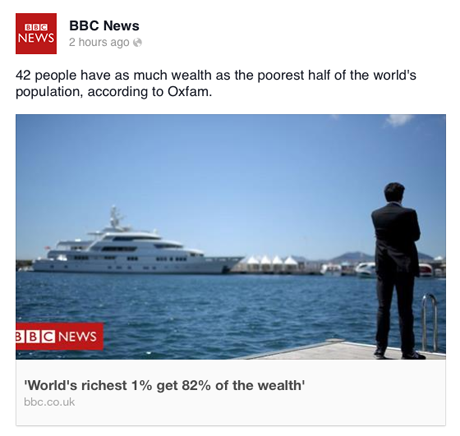










Josh, I read this again! A couple of additional thoughts:
First, the nearest college town to me is 20 minutes south in the same county. My husband and I only go there for the most crucial needs (which are few, now that I no longer go to school there!). But we have heard a lot of recent reports from friends and clients that this town is doing absolutely insane things with its downtown streets, sidewalks, and bicycle lanes, basically the downtown UNDRIVABLE. Yep, it's being transformed into a 15-minute hell-hole.
Second, the US government has been limiting our access to OUR PLANET for over a century. It is my current comprehension that the "national parks" system (which then spawned state, county, and local park systems) was really designed to *cordon off* our land and make us PAY to access it! These sequestered regions also include "natural preserves," "nature conservancies," and "ecological and historical preservations." What fine fuckery is that!
My husband and I have a truck and small travel trailer which we use to take a long trip each year to visit family and friends throughout the continental US. (They do not want to visit us in California, which is very sad because this state is amazingly beautiful despite the political shit-show). But I digress.
Across the miles, we see zillions of acres of forests, wide open plains, plus countless lakes, rivers, streams, and ponds: Our Creator-given natural resources. Yet the "officials" and "experts" tell us that "wood and water and land are scarce" and so prices go up and up and up! THEY do not own the resources, but they have manipulated human consciousness so severely over more than a century that we've come to believe it's okay for a corporation or a government (same thing, I suppose) to buy up — or simply TAKE — the resources and then sell them to us! It's maddening to the core of my being!
Excellent piece, Josh! Much of this "climate crisis" BS is certainly already happening in the US and, quite specifically, here in my beautiful state of California. These psychopathic predators have GOT TO GO.